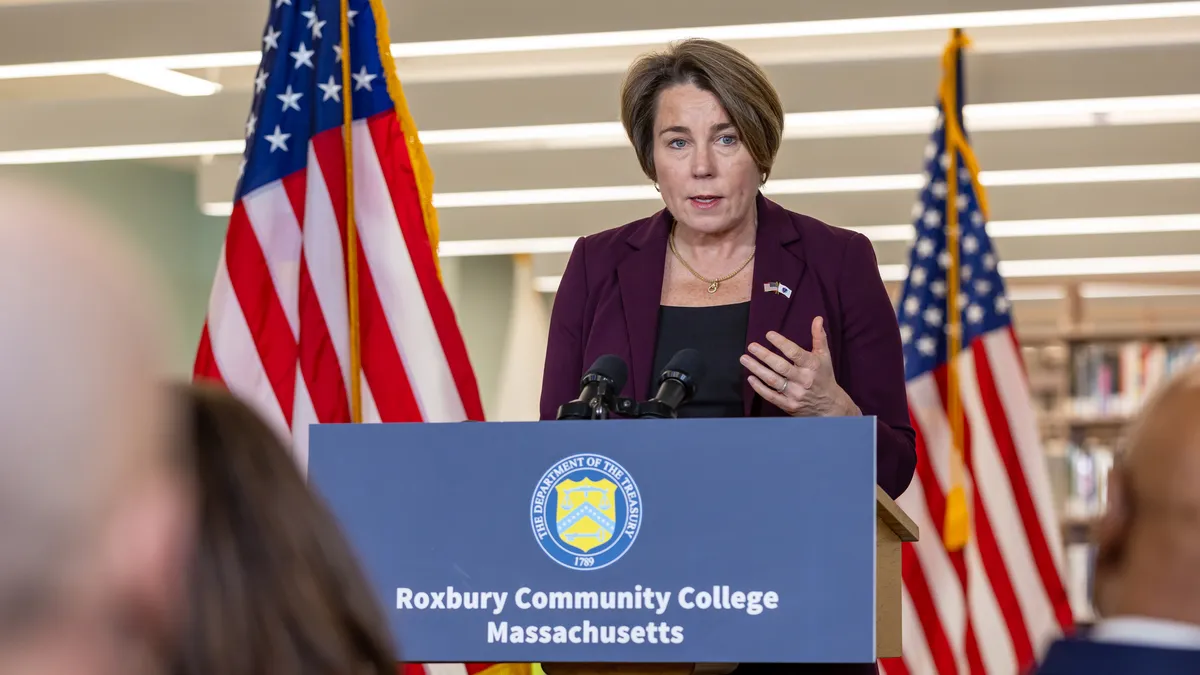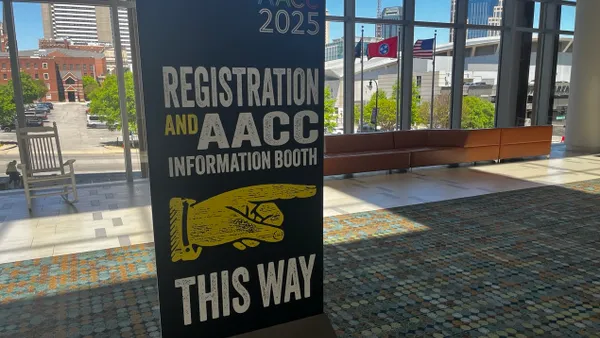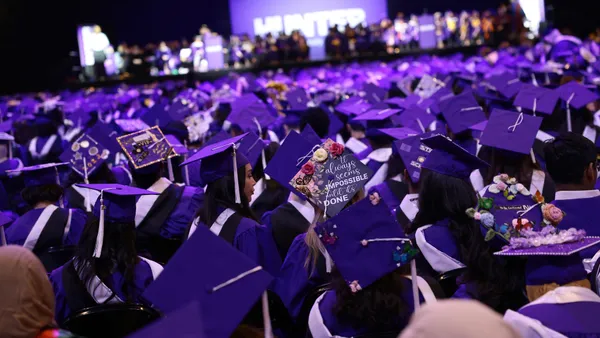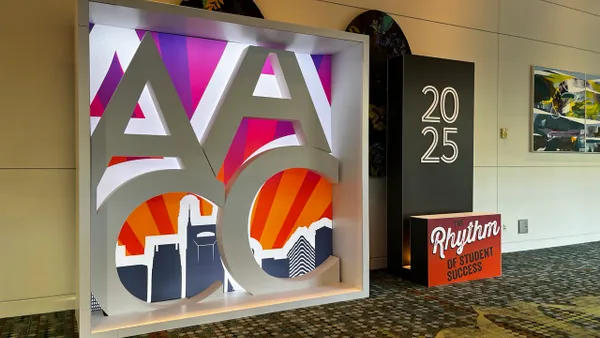Dive Brief:
- A free community college program in Massachusetts helped drive a 12% enrollment increase among adults ages 25 and older in fall 2023, representing an additional 2,635 students compared to the year prior, according to a Boston-based nonprofit focused on college affordability.
- An analysis from the Hildreth Institute found that 70% of MassReconnect participants came from households earning less than $80,000 annually, which is slightly less than the state’s median income. And the racial diversity of grant recipients closely mirrored that of the state’s overall student population.
- But MassReconnect could make several improvements to boost student outcomes, the analysis found. These include improving year-to-year persistence rates and increasing the share of students who complete the Free Application for Federal Student Aid.
Dive Insight:
Massachusetts Gov. Maura Healey campaigned on free community college for nontraditional students when she ran for office in 2022. The idea eventually became MassReconnect, which launched in August 2023.
To be eligible, students must be at least ages 25 or older, have lived in Massachusetts for at least one year, and lack an associate or bachelor's degree. They must submit the FAFSA or the state equivalent, though the program does not have income restrictions.
In fall 2023, just over 4,500 students received MassReconnect grants. Among those students, 46% were new enrollees while the rest were existing students who became eligible for the program. MassReconnect students accounted for a 9% year-over-year enrollment increase in fall 2023, representing 2,423 students.
However, the Hildreth Institute found that over a third of students who could have been eligible for MassReconnect in fall 2023 missed out because they did not complete the FAFSA. Within that group, just over half identified as non-White, suggesting racial disparities in FAFSA completions, according to the group.
The completion gap could also indicate that students 25 and older “are less likely to be familiar with the FAFSA,” the Hildreth Institute said. It added that the state should work to understand potential barriers, like the need for application assistance, to help address this gap.
The state had lauded recent gains with FAFSA completion rates.
In July, Healey's office credited MassReconnect with a bump in Massachusetts FAFSA completion. Among students 25 and older, 86% filled out the form in fall 2023, up from 79% the year prior. Those gains came ahead the U.S. Department of Education's bumpy rollout of the updated form, which sowed confusion among families and colleges.
MassReconnect is a last-dollar program, meaning it covers tuition and fees for participants after all other federal and state aid has been applied. It also provides a $1,200 allowance for books and supplies.
In fall 2023, 43% of MassReconnect recipients were eligible for Pell Grants, the Hildreth Institute found. The federal grant is open to students who demonstrate significant financial need.
During the 2023-2024 academic year, the maximum Pell award was $7,395. The average tuition and fees for Massachusetts' community colleges for the same period was $6,846.
That means the state may not be footing the tuition bill for its Pell Grant recipients.
"Since the Pell Grant often covers these tuition costs entirely, there’s usually little left for MassReconnect to cover," the report said. It added that the program’s books and supplies allowance may have been able to help Pell-eligible students cover additional costs.
Higher-income students likely received a disproportionate portion of the program's funding, as they did not first have federal aid lowering the price of their attendance, the Hildreth Institute found.
However, the nonprofit noted this isn’t inherently a bad outcome.
"It’s essential to recognize that many non-Pell-eligible students still come from moderate-income households and often experience unmet financial need," the report said.
Separate research has found that a household's income level is not always reflective of its wealth — and the security it brings. This is especially true for Black and Latine families, who have disproportionately low levels of wealth, which includes savings and assets and is often passed down generationally.
The Hildreth Institute also warned state leaders that, without proper guardrails, MassReconnect could siphon off students from the state's four-year institutions.
"There is concern that the promise of free college may attract students to transfer from four-year institutions to community colleges, potentially enrolling in programs that don’t fully match their academic aspirations or career potential," the report said.
These recommendations come as Massachusetts' free college efforts are expanding. This year, the state expanded access to free community colleges for students younger than 25.
Massachusetts is one of several states leading the free college movement after previous efforts at the federal level fizzled. Future nationwide free college policies under the incoming Trump administration appear unlikely.
Michigan launched a similar free community college program for adult learners with no postsecondary credentials, Michigan Reconnect, in 2021. The state temporarily lowered the program's age requirement from 25 to 21 in 2023 before ultimately expanding free community college to students of all ages this year.













